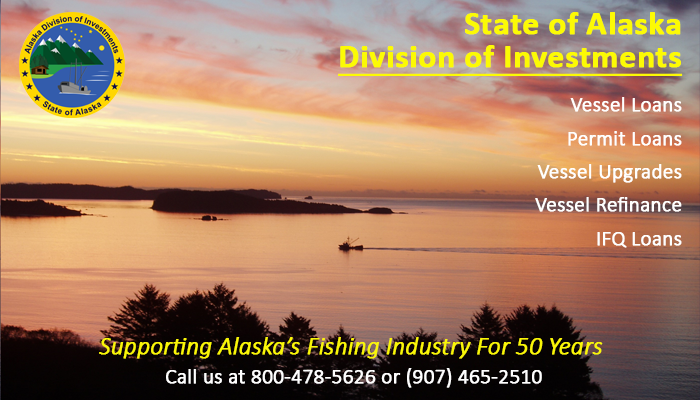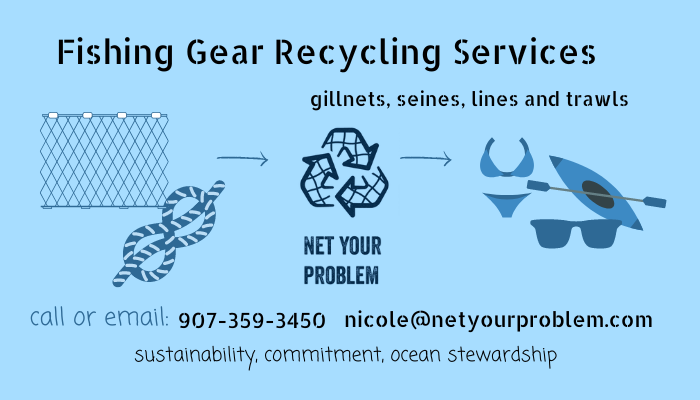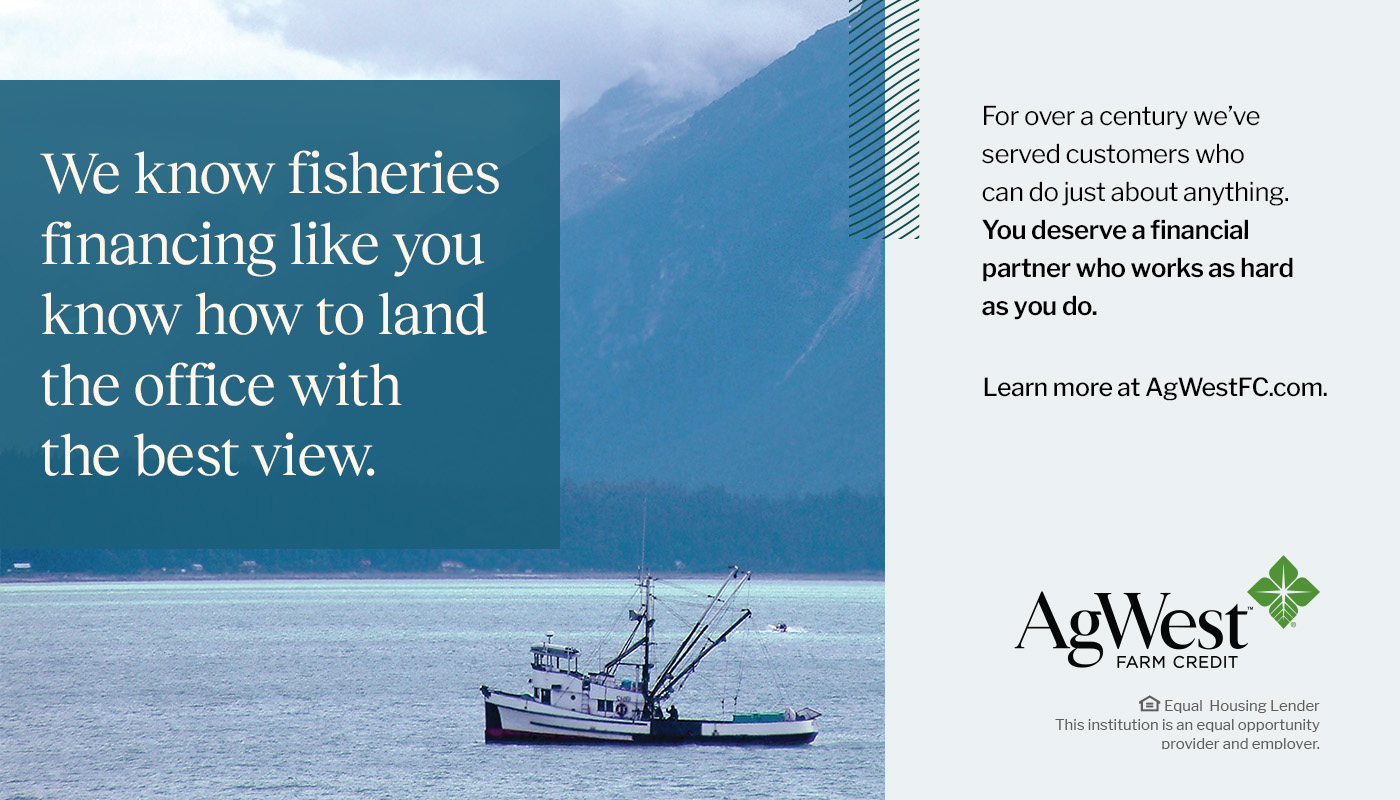The Fish Ticket
August 3, 2024
Permits & State Fisheries
Well, it's fair to say that permit activity is... not what it was a couple weeks ago. Cook Inlet drifters have had a good season (whaaaat?!) and permit values have shot up. A few weeks ago those permits were selling around $25,000. Last week they hit $34,000 and our highest offer is now $38,000. Our lowest asking price is $44,900. What a glow up!
On the other end of the spectrum, Bristol Bay sockeye were, on average, the smallest on record. Despite a decent run and better prices than last year, smaller fish meant lesser poundage and our highest offer for Bristol Bay drift permits is $110,000. To be clear, though, no permits have actually sold at that price and our lowest asking price is $135,000. We sold a Bristol Bay set net permit at $60,000.
In other news, pink salmon have apparently decided not to show up this year. It's possible they're just late, especially in some areas, but some fishermen are already calling it quits. Here are some really depressing charts for you, pulled from ADFG's weekly tracker (click any image to enlarge it).
This is the statewide pink salmon harvest:

Here's Kodiak:

And here's PWS:

On a brighter note, chum salmon showed up strong early in the season. The prices aren't great, and they do seem to be cooling off, but at least there were some fish. Here's the statewide harvest:

IFQs & Federal Fisheries
3ABU quota sold at $27.00 and $28.00 this week, and there's continued interest in 3A unblocked. Halibut is fetching $5.00-$6.00 around the state, but interestingly, some processors are paying less for larger fish. In Sitka, fishermen got $5.00/$5.50/$6.00, but only $5.00 for fish over 80 pounds. We've seen similar trends elsewhere.
Still no interest to speak of in the sablefish world, despite plenty of "deals" to be found.
ASMI's July Groundfish Report shows the statewide all-species harvest down just 3% form last year. Halibut is on par with last year, but sablefish is down 22% and rockfish harvests are down 29%.
The statewide halibut TAC is 44% harvested, with 2C at 56%, 3A at 51%, 3B at 42%, 4A at 23%, and 4C/D at 8%. (4B landings are currently confidential.) The statewide sablefish TAC is 34% landed, with AI at a whopping 3%, BS at 16%, CG at 44%, SE at 49%, WG at 27% and WY at 61%. Of note, the combined BSAI sablefish harvest is down 47% from this time last year, while the GOA harvest is only down 14%.
The IPHC has started its trial run of electronic logbooks. Using Deckhand software on iPads, skippers can now skip out on the paper IPHC Pacific halibut logbook. More here.
What Else?
In Council news, the US Secretary of Commerce [finally] announced appointments to the NPFMC (which, if you'll recall, were due by June 27). John Moller of Anchorage and Brian Ritchie of Homer were both appointed to the Council - neither were contested, this was business as usual. But, in a surprise shakeup (that many saw coming) the Secretary rejected conservation advocate Becca Robbins Gisclair, Washington Gov. Inslee's top choice, for its seat on the North Pacific Fisheries Management Council, and instead reappointed Anne Vanderhoeven, Inslee's last choice and an employee of the trawl industry. Conservation and tribal advocates view this as a slap in the face, while trawlers and the communities dependent on them let out a sigh of relief. Oh, the drama!
Governor Dunleavy vetoed a handful of bills that passed the Alaska legislature after midnight on the last day of the legislative session, back in May. Among them was HB19, which would have eliminated the requirement for USCG documented vessels with current CFEC fishing vessel licenses to also be registered with the DMV. So for now, that requirement stands.
House Republicans have proposed a 22% cut to NOAA Fisheries’ 2025 budget, $239 million less than the agency requested and $248 million less than it received for 2024. The proposed numbers would mean a roughly 10% cut to the fisheries science and management budget, a 17% cut for enforcement, and a 29% cut for habitat conservation and restoration. While handing out the cuts, the bill simultaneously directed the agency to allocate more money towards fishery information networks and assistance for regional management councils' work towards climate ready fisheries. (No, they weren't given any more money with which to do so, why do you ask?)
Northline Seafoods freezer barge, the "Hannah" is back at full capacity after an electrical fire limited operations on June 30. Northline is currently purchasing in Ugashik, Nushagak and Naknek, and will be purchasing until at least August 10. Props to some seriously hardworking engineers!
Remember when OBI dropped the Alitak setnetters earlier this season? Here's the full story on how they managed to scrape together a season despite some pretty strong headwinds, and how theirs is just one part of a much larger industry narrative.
Fishery managers in Bristol Bay closed the Egegik district for four days last week, citing numerous instances of fishermen setting gear over the line.
Last year the Wild Fish Conservancy, a Washington-based environmental nonprofit, sued the feds in an attempt to shut down the Southeast Chinook troll fishery, arguing that the fishery violates the Endangered Species Act and is further endangering an already-endangered group of orcas. At Thursday's appeals court hearing, a panel of judges expressed some pretty overt skepticism about whether that was true and whether shutting down the fishery would, in fact, save the whales. (See what I did there?) Expect a ruling in the next few months.
The MSC has rejected a recent request by Canadian nonprofit Ocean Wise to remove its certification of Southeast salmon.
Meanwhile, the Canadian-based NGO Ocean Wise has revoked its endorsement of Southeast salmon pending resolution of the case (and, likely, of Wild Fish Conservancy's separate effort to list Chinook salmon under the ESA).
With Russian pollock export prices at their lowest in six years, the country's fisheries regulators are considering industry pleas to cut the 2025 quota.
Read up on the newest MSA reauthorization effort, seafood in the new Farm Bill, how the overturning of Chevron will affect fisheries and more in Ocean Strategies' Summer 2024 Fisheries Policy Report.
Last week's "Talk of Alaska" dove into the outlook for Alaska's commercial fisheries with Julie Decker of Pacific Seafood Processors Association, Tracy Welsh of United Fishermen of Alaska, and ASMI's Jeremy Woodrow.
New technology and computer modeling can age rockfish faster and just as accurately as humans, which is a crucial part of effective fisheries management. That's pretty neat!
Meanwhile, in Bristol Bay, new tech is enabling much more accurate navigation. Longtime Bristol Bay fisherman Chris Hager developed Bristol Maps, an app that uses satellite imagery not only to navigate, but also to find fish. Data is georeferenced, and users can mark and even privately share waypoints and routes, even when offline. Bristol Maps also offers weather updates, tide tracking, and logging tools. That's pretty neat, too!
The Silver Bay Seafoods vs Peter Pan Seafoods saga continues... SBS is set to purchase PPS' canned salmon inventory, at a price tag of over $27 million. If approved by a Washington state court, SBS would also assume nearly $2.3 million in liabilities, which include an unfilled USDA contract. Roger May, part owner and "chief growth officer" of PPS, has also submitted a bid to purchase the canned salmon assets, but his offer does not have the support of Peter Pan's court appointed receiver. At the same time, May has requested court approval for his $15 million bid on multiple PPS assets including the Port Moller processing plant, the King Cove fuel business, a warehouse in Ballard, frozen inventory, quota, fishermen's loans, and more.
The Alaska Salmon Research Task Force issued a report last week highlighting the need for a more holistic approach to salmon management that considers all habitats, as well as the people that depend on salmon. Other recommendations included technological improvements, increased use of indigenous knowledge, and collaboration and community engagement. The report also cited concerns over bycatch and lack of food availability in the marine environment due to climate change, hatchery fish, and more.
Speaking of task forces, eight members were named to the joint legislative task force established to evaluate Alaska’s seafood industry. The task force has outlined a framework to guide longterm strategic planning for the industry, including ways the government can assist the industry and coastal communities right now, new product development, improvements to marketing and improved quality. Whole lot of task forcing going on lately.
The F/V Resilient, a 58 footer that ports out of Kodiak, caused some regional drama when it trekked up to Norton Sound to participate in the open access Norton Sound red king crab fishery, which closed about two weeks ago. Although entirely legal, some think the vessel's participation was "unethical" because it took away from the locals' share of the 433,100 pound GHL. What do we think? Ethical? Unethical?
Seafood retail prices have been on a downward trajectory for most of 2024, but consumers still aren't biting. What gives?
Senator Dan Sullivan is working to incorporate the FISH Act to the upcoming annual Defense spending bill. The Fighting Foreign Illegal Seafood Harvest (FISH) Act would create a blacklist of vessels which have engaged in illegal, unreported, and unregulated fishing and ban them from entering US waters. Under the Act, the Coast Guard would increase at-sea inspections of vessels suspected to be engaging in IUU fishing and the U.S. government would be required to report on how new technology can be used to combat IUU fishing and how the Russian and Chinese fisheries affect the US market.
Unalaska's Robert Storrs Small Boat Harbor could be in for some major upgrades after the city unanimously approved submitting an application for a $5 million grant earlier this month. An answer is expected by October. The need is so pronounced that some city council members are willing to move forward with the project even without the grant funds.
This week's Alaska Fisheries Report: Southeast Alaska salmon loses the endorsement of a Canadian conservation group, and fishermen are testing experimental gear that could allow east side Cook Inlet set net fishermen a chance to fish again.
Friday's Bering Sea Barometer: "It’s shaping up to be a poor salmon season across the state, but rumor has it the price of cod is up; we’ll take a look at the Alaska seafood market with special guest and captain and boat owner Ryan Johnson; and it’s trivia time — find out what song is stuck in your host Captain Pete Neaton’s head this week."
In yet another potential blow to federal fisheries management and the regional council system, a Florida fisherman has challenged the constitutionality of a 2021 catch limit rule, Amendment 56, which cut his gag grouper quota by 80% and shifted allocation from commercial to recreational fishermen. This is the fourth case of its kind filed recently, all of which have plaintiffs represented by the Pacific Legal Foundation, whose mainstay is suing the feds. The suit argues (again) that council members are improperly appointed and aren't accountable to the public, and therefore, the regulations it develops are unlawful.
A cyanide leak at a large gold mine in Canada's Yukon Territory is raising concerns among Canadians and Alaskans alike. Although officials have said there's likely no health threat, salmon advocates are worried about potential impacts to the Yukon River's already struggling salmon runs.
In yet another example of just how far politicians will go for a good acronym, US Senators Whitehouse and Murkowski introduced the bipartisan Opposing the Cultivation and Trade of Octopus Produced through Unethical Strategies Act, or OCTOPUS Act. The act aims to preemptively outlaw both octopus farming and the imports of farmed octopus.






